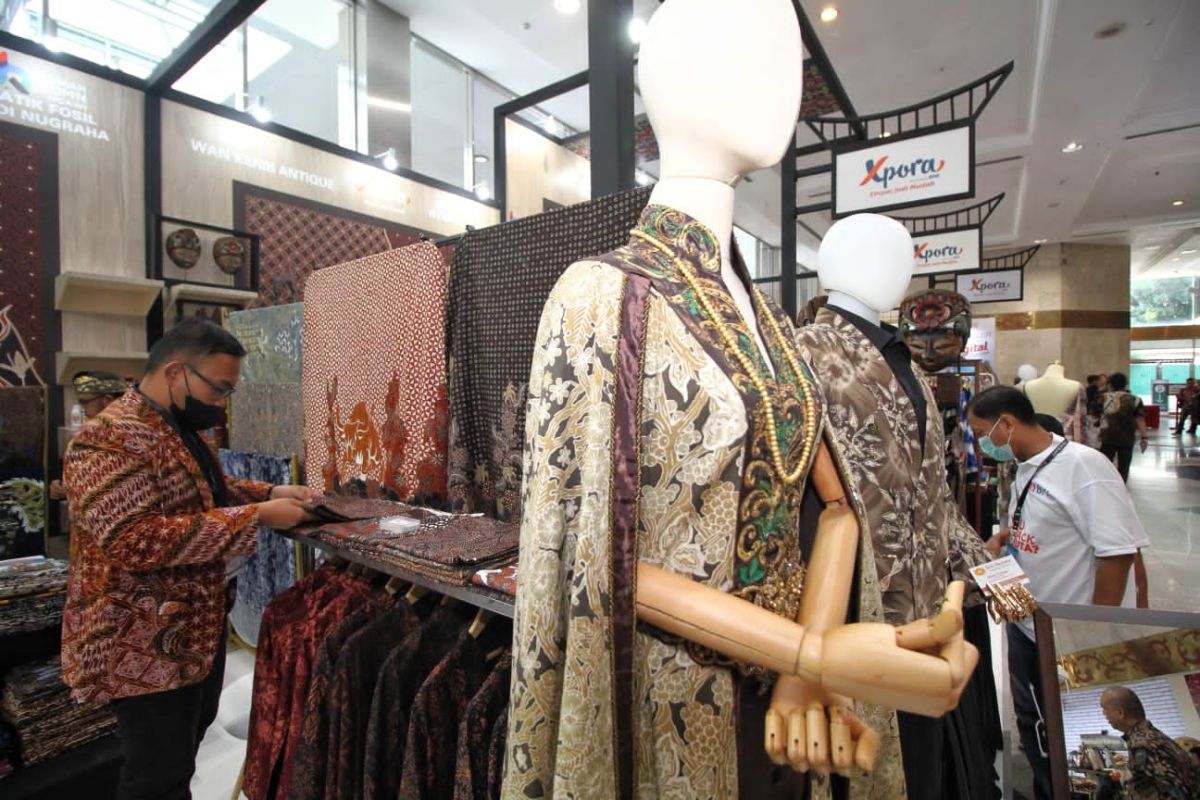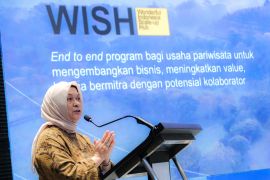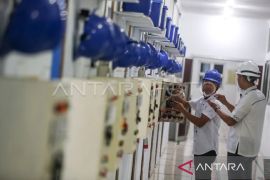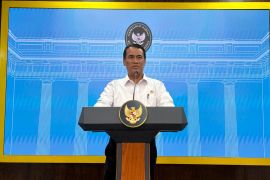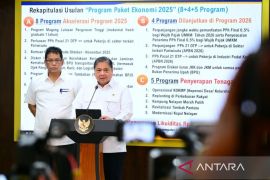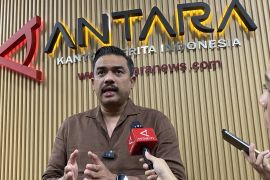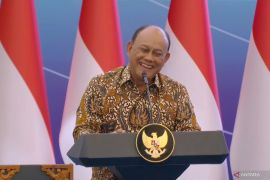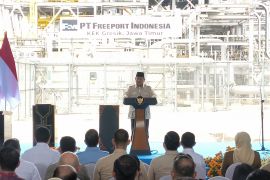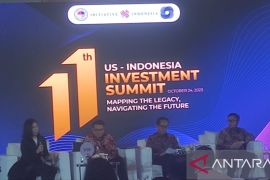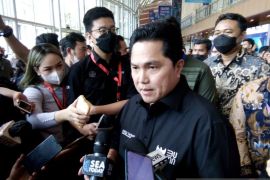Several sectors, including micro, small, and medium enterprises (MSMEs), have suffered during the pandemic, although some managed to survive during the community’s mobility and travel restrictions.
However, after the pandemic began to slow down, the Indonesian government started to implement several economic recovery strategies, including for MSMEs' revival.
MSMEs are becoming a priority in the national economic recovery strategy called National Economic Recovery (PEN). The three main policies in PEN are increasing domestic consumption, increasing business activity, and maintaining economic stability and monetary expansion.
Of the three policies, the government has prepared various facilities to increase the productivity of MSMEs in the country, including subsidizing, providing tax incentives, and credit restructuring, to help affected MSMEs during the pandemic bounce back and increase their business capacity.
Within the PEN framework since three years ago, the government has allocated Rp123.46 trillion specifically for the recovery of MSMEs.
The funds are divided into interest subsidies of Rp35.28 trillion, government funds for restructuring amounting to Rp78.78 trillion, spending on guarantee fees of Rp5 trillion, guarantees for working capital of Rp1 trillion, MSMEs' final income tax borne by the government of Rp2.4 trillion, and investment funding for cooperatives of Rp1 trillion.
In addition, the Ministry of Cooperatives and Small, Medium Enterprises (SMEs) allocated an additional budget of up to Rp30 trillion for 12 million MSMEs.
Indonesian Finance Minister Sri Mulyani stated that MSMEs are one of the important pillars for Indonesia’s economic recovery apart from the health and social protection sectors.
“Indonesia has 64 million MSMEs that represent 99 percent of the total business activities. They even absorb 97 percent of employment and contribute 60 percent of our gross domestic product (GDP),” Mulyani noted.
However, the minister observed several challenges faced by MSMEs' owners, such as limited market access, lack of skilled human resources, lack of skills in technology, and limited access to financial services. Inadequate infrastructure in several regions has also hampered the growth of MSMEs, especially in remote areas.
Hence, the Indonesian government is aiming to complete various infrastructure developments, starting from roads, railroads, bridges, airports, and market revitalization, to digital connectivity infrastructure.
"We have allocated a budget to ensure remote areas (around 20 thousand villages in Indonesia) to connect to the Palapa Ring Satellite and base transceiver stations as our efforts to distribute digital technology,” she remarked.
Moreover, the government has provided the People's Business Credit (KUR) program and Ultra Micro financing (UMi) to help MSMEs in accessing financing, considering there are around 18 million MSMEs in Indonesia that have no access to formal financing and around 46 million MSMEs that still need additional funds for capital and investment.
The Indonesian government also highlighted MSMEs' digitization, with the target to digitalize 40 million MSMEs by 2024, while in 2022, only 20.76 million MSMEs were included in the digital ecosystem.
Apart from the budget and infrastructure, the government also issued regulations that prioritize MSMEs, such as Government Regulation in Lieu of Law (Perppu) Number 2 of 2022 concerning Job Creation.
Job Creation Perppu for MSMEs
Job Creation Perppu (Ciptaker) Number 2 of 2022, which is a substitute for Law Number 11 of 2020 concerning Job Creation has been ratified on December 31, 2022.
While announcing the Job Creation Perppu, Coordinating Minister for Economy Affairs Airlangga Hartarto emphasized that the regulation aimed at providing legal certainty to the business world, including MSMEs' owners.
Article 3, letter a of the Job Creation Perppu states that the regulation was made to provide convenience, protection, and empowerment for cooperatives, MSMEs, and the national industry and trade as an effort to absorb a large part of the Indonesian workforce while still paying attention to balance and progress between regions.
Moreover, Article 3, letter c stipulates that the Job Creation Perppu was made as a form of alignment, strengthening, and protection for cooperatives, MSMEs, and the national industry.
Director of Information and Communication for the Economy and Maritime Affairs (IKPM) of the Ministry of Communication and Informatics Septriana Tangkary, at the event to disseminate information on the Job Creation Perppu in front of 100 other MSMEs in Bali earlier this month, stated that the regulation offers convenience in several ways to business actors, including access to licensing, markets, and digital ecosystems.
The Job Creation Perppu deserves support on account of its several advantages. First, it can open large investments, offer assistance to the entire community, especially MSMEs, and provide opportunities to collaborate and coordinate with the government.
Tangkary stated that MSMEs were one of the government's priorities in the Job Creation Perppu, as this sector contributes significantly to the national economy. MSMEs' contribution to Indonesia's GDP in 2021 reached Rp8,573.9 trillion, or around 61.07 percent of the total GDP. Moreover, MSMEs were able to absorb 117 million workers.
"MSMEs are one of the priorities in this Perppu. We must be proud of this Perppu,” Tangkary affirmed.
She highlighted that the Perppu also supported several forms of digitization, such as the online single submission (OSS) licensing system that helps MSMEs' owners to license their business, digital MSMEs credit (digiKU), MSMEs digital market (PaDi), and the Goods and Services Procurement Policy Institute (LKPP) catalog.
On the same occasion, Chair of the Synergy Working Group on Substance Socialization of the Job Creation Law, Tina Talisa, stated that OSS helps MSMEs' owners to obtain permits for their businesses.
“OSS only requires the identity number of the MSMEs' owners to license their businesses,” she noted.
Thus, MSME owners can easily apply for Business Identification Numbers (NIB), which are also useful as Company Registration Certificates (TDP), Import Identification Numbers (API), and Customs Access for companies for import-export activities.
Chairperson of the Bali Provincial Regional National Craft Council (Dekranasda) Putri Suastini Koster urged MSMEs owners in Bali to make the most of the various business facilities, especially after the enactment of the Job Creation Perppu.
"The government has tried to simplify regulations for MSMEs. Now, let us be passionate to utilize it, including starting a business with a legal permit,” she remarked.
Bali has over 440 thousand units of micro, small, and medium enterprises. The Bali Industry and Trade Service recorded that the largest number of MSMEs was in the trade sector, reaching 254,655 units; agriculture, 34,375 units; non-agriculture, 61,202 units; and other services, 37,391 units.
Of that figure, 15,196 were weaving business actors, with a total of 2,244 weavers.
All MSMEs in Indonesia must pay attention to various business facilities and protection regulated in the Job Creation Perppu, including those in the frontier, remote, and underdeveloped areas.
It is also necessary for the government to conduct dissemination of information in various regions in the country in collaboration with related institutions and organizations to educate domestic MSMEs regarding the facilities and protection provided by the government.
Related news: Digital transactions can make MSME financial access easier: Govt
Related news: Ministry aims to help 24 mln MSMEs join digital ecosystem
Editor: Rahmad Nasution
Copyright © ANTARA 2023
